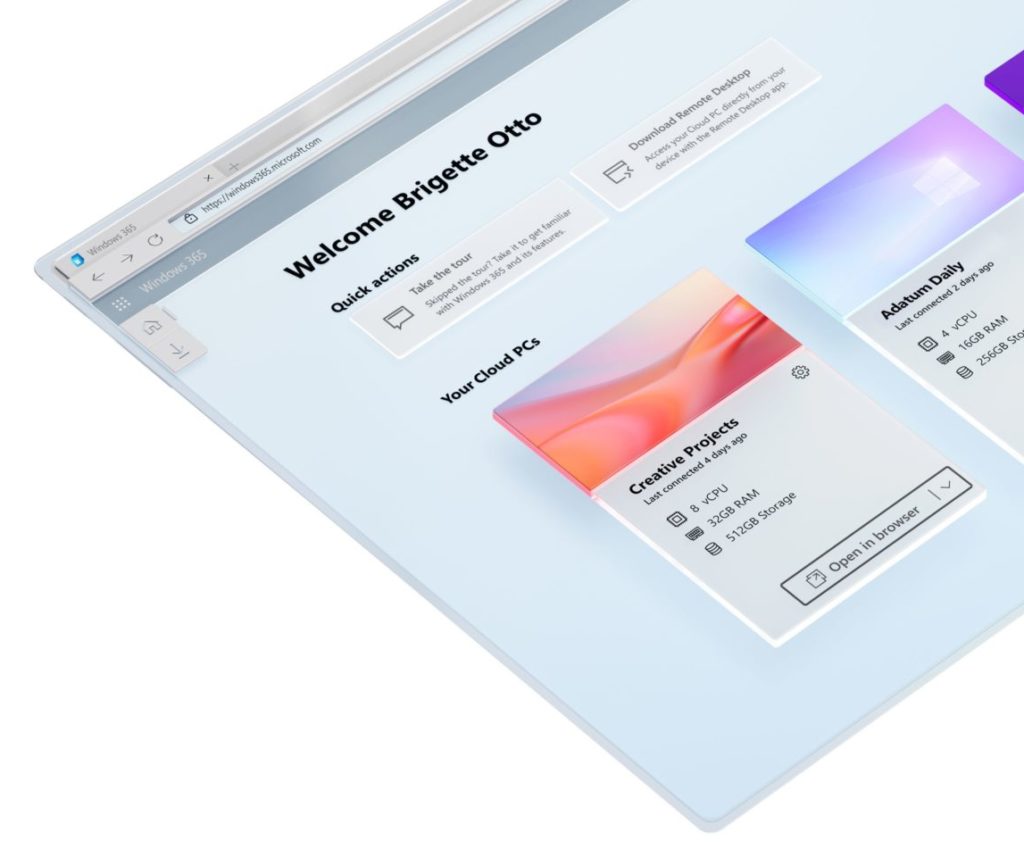Microsoft has announced the launch of Windows 365, a cloud-based software-as-a-service version of its signature operating system. It’s a long-anticipated move that is the next logical step in Microsoft’s lucrative SaaS strategy. Over the past decade, Microsoft’s foray into SaaS, primarily for its Microsoft 365 and Office 365 offerings, has helped the company reap an enormous fortune as it shifts from a “you own it” to a “you rent it” model.

Windows 365: Say hello to the Cloud PC
So, what is Windows 365? At this point, it’s still a bit hazy. The product launches Aug. 2, and until then, we won’t know all the details, including pricing. (We do know it will entail a monthly per-user subscription.) But according to Microsoft, Windows 365 “takes the operating system to the Microsoft cloud, streaming the full Windows experience — apps, data, and settings — to personal or corporate devices.” Basically, it will stream a full version of Windows 10 or Windows 11 to any browser no matter which operating system the device is running. In addition to its being software-as-a-service, Windows 365 falls under the subcategory of desktop-as-a-service (DaaS), which is already offered by several high-powered providers including Amazon, Citrix, and VMware. Microsoft has given its SaaS/DaaS offering a new name: the Cloud PC.
With Windows 365, we’re creating a new category: the Cloud PC. Just like applications were brought to the cloud with SaaS, we are now bringing the operating system to the cloud, providing organizations with greater flexibility and a secure way to empower their workforce to be more productive and connected, regardless of location.
— Microsoft chairman and CEO Satya Nadella

A hybrid-work solution
Microsoft is positioning Windows 365 as a solution for security and logistical problems encountered as companies embrace hybrid work, where workers split time between the office and working from home — often using their own computers and devices.
Perhaps the biggest selling point for companies is that Windows 365 promises to be more secure than the hodgepodge of hybrid-work solutions IT pros have been forced to put in place since the pandemic. With companies facing a barrage of cyberattacks and data breaches often caused by the bad security practices of work-from-home employees, Microsoft says Windows 365 is “secure by design” and “built with the principles of Zero Trust,” allowing employees to securely access “corporate resources across locations and devices.” Windows 365 stores data on the cloud — the information is not stored on devices. Of course, what happens when the Internet goes down for remote employees is a subject worth considering.
Another selling point is it will be scalable, so pricing can be adjusted based on a company’s needs. Microsoft says workers can “cycle on and off teams without the logistical challenges of issuing new hardware or securing personal devices.”
Microsoft already offers a somewhat similar product: Azure Virtual Desktop, which provides much of the under-the-hood engine for Windows 365. But while Azure Virtual Desktop is positioned for the enterprise market, Windows 365 is aimed at companies of all sizes, including small businesses.
Where do Microsoft partners fit in?
What about third-party partners and solution providers that helped make the traditional Windows OS run better over the years and built their businesses on supporting Windows? Microsoft says not to worry — although, with Microsoft’s track record, there’s good reason for many to be wary. The official Microsoft line on this is that Windows 365 “gives partners the power to build innovative, industry-specific solutions.”
Featured image: Shutterstock



